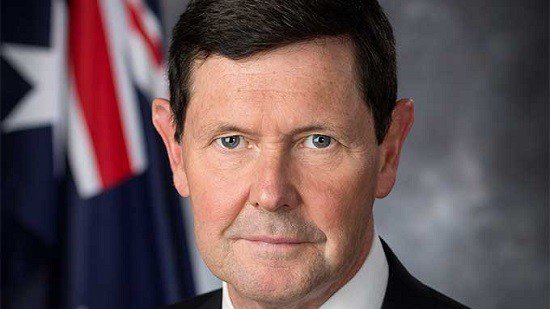THE Australian Small Business and Family Enterprise Ombudsman (ASBFEO) Kate Carnell has handed down her Insurance Inquiry final report, finding widespread market failure in regards to the availability and affordability of essential small business insurance products.
“Our Insurance Inquiry has revealed we are in the grip of a national crisis that is killing small businesses,” Ms Carnell said.
“The local insurance market has been hardening for years as insurers adapt their risk weightings to increasing threats. As a result, far too many Australian small businesses are on the brink of collapse because they cannot secure a range of insurance products necessary for their operation.
“Small businesses have told us they have either been denied insurance outright or their premiums have as much as tripled in just a few years, effectively pricing them out of the market," Ms Carnell said.
“Hundreds of small businesses have told my office they face closure if insurance remains unavailable to them. In reality, it means thousands of small businesses are likely impacted and there could be dire consequences for the Australian economy if left unaddressed.”
The final report makes a suite of recommendations designed to rebalance risks taken on by insurers and make small business insurance products more accessible.
A major recommendation included in the report is to expand the Australian Reinsurance Pool Corporation to provide reinsurance for all natural disasters on commercial property insurance.
“Following the devastating bushfires we saw earlier this year, many small businesses are struggling to get insurance for natural disasters,” Ms Carnell said.
“This is severely impacting small businesses such as rural pubs and regional accommodation businesses that say natural disaster coverage is inaccessible, extraordinarily costly or they have been refused coverage outright.
“In the wake of the September 11 terrorist attack in the US, the government set up the Australian Reinsurance Pool Corporation, in response to a withdrawal of terrorism insurance by insurers and reinsurers," she said.
“This should be expanded to cover small businesses in the event of a significant natural disaster by providing a vital increase in reinsurance options for commercial insurers.”
Ms Carnell said the insurance industry urgently required a mandatory Code of Practice, recommending the Australian Financial Complaints Authority (AFCA) be given additional powers to deliver dispute resolution and enforcement.
“Self-regulation in the insurance industry has failed,” Ms Carnell said.
“As it stands the insurance industry’s service and practice standards are set by voluntary codes of practice that are rarely enforced and not taken seriously by the industry.”
The report highlights a lack of availability of public liability and professional indemnity insurance, pin-pointing the unlimited nature of injury claims and potential for large damages as a key factor.
“Public liability insurance has become almost impossible for small businesses to obtain, particularly those that offer recreational activities such as caravan parks, quad bike tours or jet boating to name a few,” Ms Carnell said.
“Our report recommends Australia follow the lead of New Zealand, which has applied statutory caps on liability for personal injury. The risk environment for public liability litigation can only change through government intervention and the current framework of fault-based injury compensation creates uncontrollable risks for insurers and small businesses. It’s clear we need a civil liability framework that actually works.
“The government should also implement the Productivity Commission’s recommendation to roll out a no-fault National Injury Insurance Scheme (NIIS) to cover lifetime care for catastrophic injuries. It’s been nine years since the Productivity Commission released its Report into Disability Care and Support and yet the NIIS is still under consideration, much to the detriment of the small business sector.”
Ms Carnell thanked the 800-plus small businesses that took the time to complete the insurance survey, describing their feedback as both insightful and concerning.
“We’ve had an overwhelming response from the small business community, many of whom told us that insurance is one of their largest expenses and a lot are under-insured,” Ms Carnell said.
“We also heard reports of poor conduct by insurers, including very late notice of renewal terms and price hikes, effectively putting the small business in the position of accepting the terms or being uninsured.
“For a significant number of small businesses, insurance has become a daily stressor and a major reason for considering closure.
“In addition to the response we had from small businesses, we also welcome the 20-plus submissions we received from industry stakeholders, which helped in the development of this comprehensive report.
“Ultimately insurance is a necessity for small businesses to operate, which is why it is vital these products are fit-for-purpose and accessible so they are protected when things go wrong.”
www.asbfeo.gov.aqu
ends



